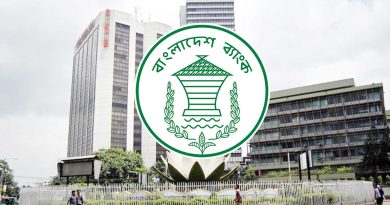The Bangladesh Bank has simplified the process of paying foreign internet bandwidth service providers, allowing banks to remit funds directly without seeking central bank approval, provided certain conditions are met.
In a circular issued on Sunday (31 August), the central bank also delegated authority to commercial banks to issue performance guarantees in favor of foreign contractors, eliminating the need for separate approval.
To remit funds abroad for bandwidth services, banks must ensure clients submit necessary documents, including a valid operating license, a copy of the contract with the foreign entity, approval from BTRC and relevant authorities, tax clearance certificates, invoices, and audited financial statements supporting the payment. Banks must verify these documents, maintain complete records, and make them available to the central bank during inspections. They are also required to strictly comply with anti–money laundering and counterterrorism financing regulations.
The same circular granted general permission for issuing performance bonds or guarantees on behalf of local exporters and subcontractors working under foreign contractors.
A senior central bank official said local subcontractors often require guarantees to work under foreign contractors. “By allowing banks to issue these guarantees directly, project implementation will be faster, and foreign currency inflows will also benefit,” the official noted.
The Foreign Exchange Policy Department further instructed banks to obtain undertakings from clients to promptly repatriate any excess or erroneous remittances.
Industry insiders welcomed the move, saying the new rules would save time and simplify foreign transactions by eliminating approval delays for bandwidth payments.
(Bandwidth refers to the amount of data transferred from one computer to another within a specific time frame, measured in bits per second or bps.)






